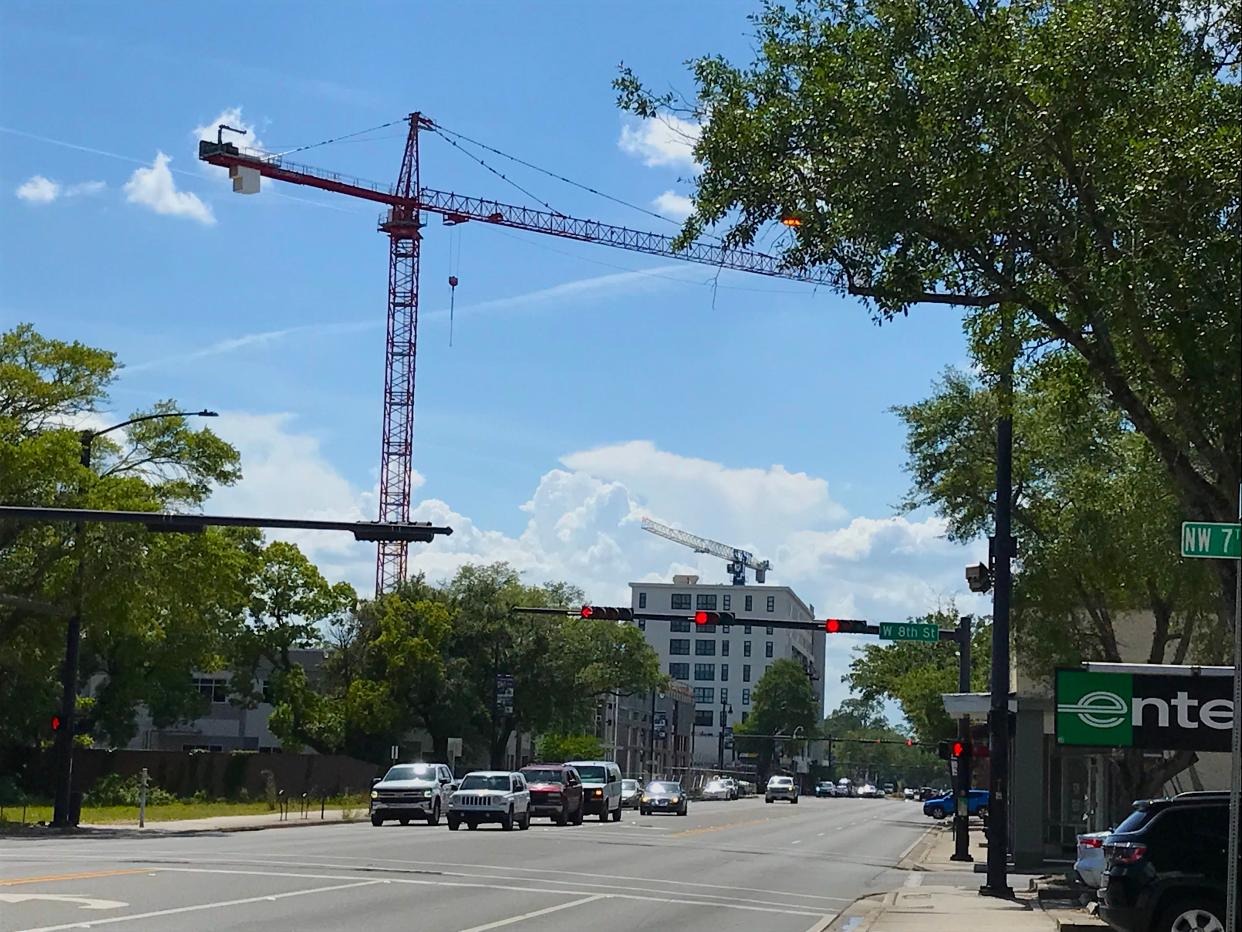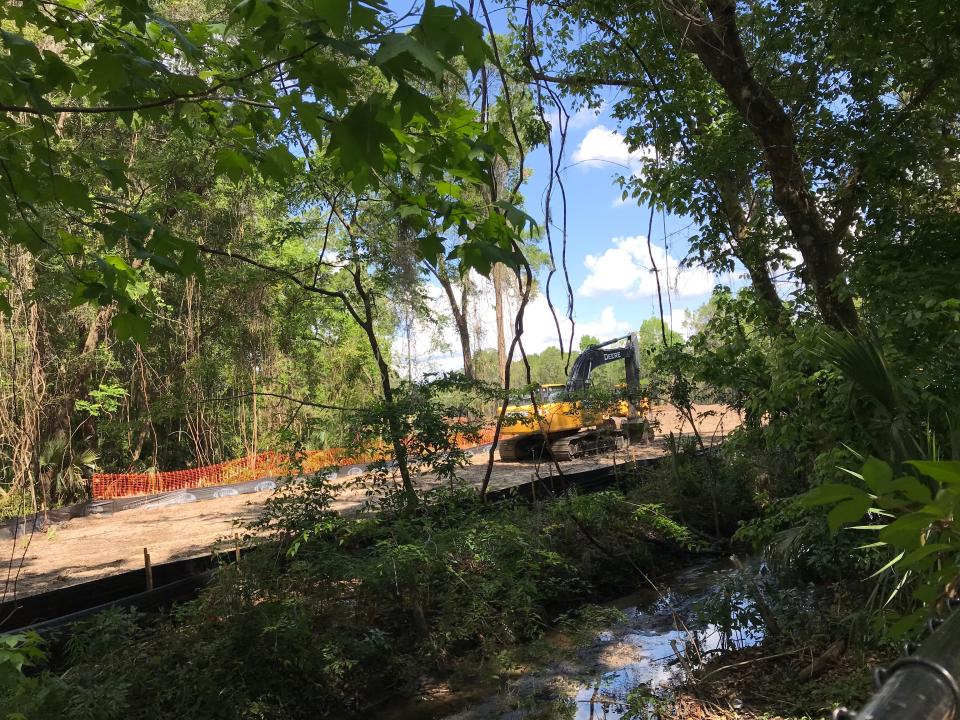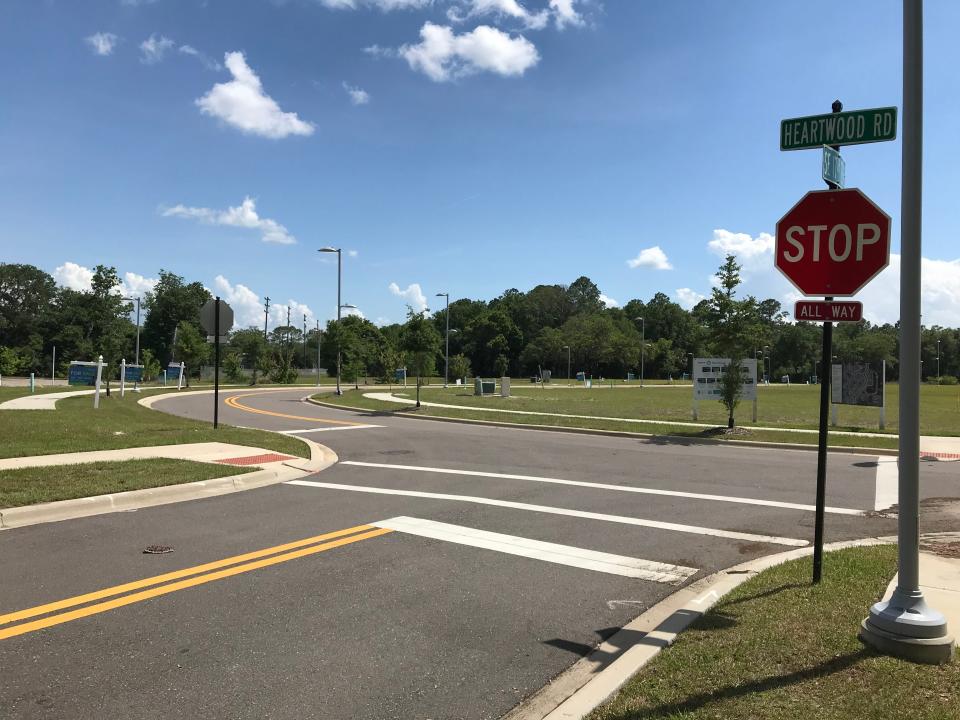The state of Gainesville: everything, everywhere, all at once

The title of the recent sci-fi movie, “Everything, Everywhere, All at Once,” captures the present urban moment in Gainesville.
Local media posts and conversations decry too little parking, and too much; roads with too many lanes or too few; buildings too tall or not tall enough; the loss of character versus a drive to create the “New American City.” Our only point of agreement may be that we mourn the loss of trees and green space. What to make of this community-wide cacophony?
Evidence of local change abounds: Contested developments are underway behind Royal Park Cinema; at St. Michael’s; on Williston, Tower, Newberry and Fort Clarke roads; and at the Westside Golf Course. Parker Road has been transformed by new subdivisions. The only languishing project is the city’s own development, Heartwood.
House flippers are arriving from New York, Miami and California, while South Florida Gators buy gameday houses, all because property in Gainesville is relatively cheap. National Airbnb companies are in bidding wars with local buyers. Returning University of Florida alums are investing their real estate profits from more expensive markets, driving up local prices.

The city’s recently passed “Renters’ Rights” ordinance has led some landlords to sell, and others to make required improvements, reducing supply while increasing rents.
Part of the frenzy we are experiencing is based on global factors. COVID left many people with temporary, disposable income, and the lockdown led some to purchase larger homes. The return-to-small-town phenomenon is a national trend.
Prolonged low interest rates, and therefore more affordable mortgages, have allowed many to buy their first homes or to “move up.”
In addition, new global, corporate real estate investors have greatly complicated our local market.
In 2018, Opportunity Zones, a Trump-era investment instrument allowing anonymous real-estate syndicates to avoid taxes by purchasing projects in “underserved” areas, came to Gainesville. Most of Alachua County east of 13th Street is in an Opportunity Zone. This partially explains the explosion of student housing, and perhaps some construction and management practices.
In Florida, around 20% of single-family homes were purchased by corporations last year, forcing a generation of potential homeowners to rent instead. This, too, is a national trend, though Florida leads the way.
More from Kim Tanzer:
The 35 villages of Gainesville: Different approach needed to increase walkability
Commissioners disrupting Gainesville’s settlement patterns in unpredictable ways
Experiences of Gainesville residents not being considered in urban design decisions
In a decade, the Airbnb phenomenon has morphed from cottage industries into a global market sector, with professionals managing properties at a distance, to the detriment of local communities.
Further complicating this volatile global market, our City Commission majority continues to try irreversible, city-wide land use experiments. They have mixed free-market and New Urbanist theories, creating an urban planning cocktail that has never been tested, anywhere.
In 2017 they approved our current Comprehensive Plan, against the wishes of most who spoke at the hearing. The major concern expressed, and overruled, was that the new plan allowed buildings too tall for some parts of Gainesville.
Responding to a general plea for a six-story height cap, Commissioner Harvey Ward assured everyone the Gainesville market would not bear buildings taller than six stories. Just five years later, we see he was wrong, as developers propose 12-story buildings in Midtown.

Against the recommendation of their own Plan Board, the commission voted to approve two accessory dwelling units per single family property, i.e., triplexes. They argued these affordable apartments would house the poor. Nearly two years later, only a handful have been built, so broader implications remain unknown.
Mayor Lauren Poe has passionately vowed to end systemic racism, while he and other commissioners approved zoning changes that threaten to destroy Gainesville’s oldest African-American neighborhoods.
By codifying the theory that pedestrians will support local ground floor businesses, while reducing parking requirements and road widths, local codes have produced blocks of empty storefronts that are too expensive for small business owners, and too inconvenient for most shoppers.
Now the commission is poised to eliminate single-family zoning. Their untested theory is that new quadraplexes in existing neighborhoods will provide affordable housing while mitigating racial inequities. Some commissioners remain confident of this outcome, despite their growing list of failed social experiments.
UF President Emeritus Bernie Machen has compared making institutional changes to moving a tent: If you move too many poles at one time, you risk collapsing the tent. In Gainesville today, many development factors are beyond our control.
Until the real estate market settles, the wise course of action would be to halt citywide experiments. The anxiety being expressed across the community comes from concern that the tent is collapsing.
Kim Tanzer lives in Gainesville. She is a former University of Florida architecture professor who was also dean of the University of Virginia's School of Architecture.
Join the conversation
Send a letter to the editor (up to 200 words) to letters@gainesville.com. Letters must include the writer's full name and city of residence. Additional guidelines for submitting letters and longer guest columns can be found at bit.ly/sunopinionguidelines.
Journalism matters. Your support matters.
Get a digital subscription to the Gainesville Sun. Includes must-see content on Gainesville.com and Gatorsports.com, breaking news and updates on all your devices, and access to the eEdition. Visit www.gainesville.com/subscribenow to sign up.
This article originally appeared on The Gainesville Sun: Kim Tanzer: Gainesville development causing anxiety across community

